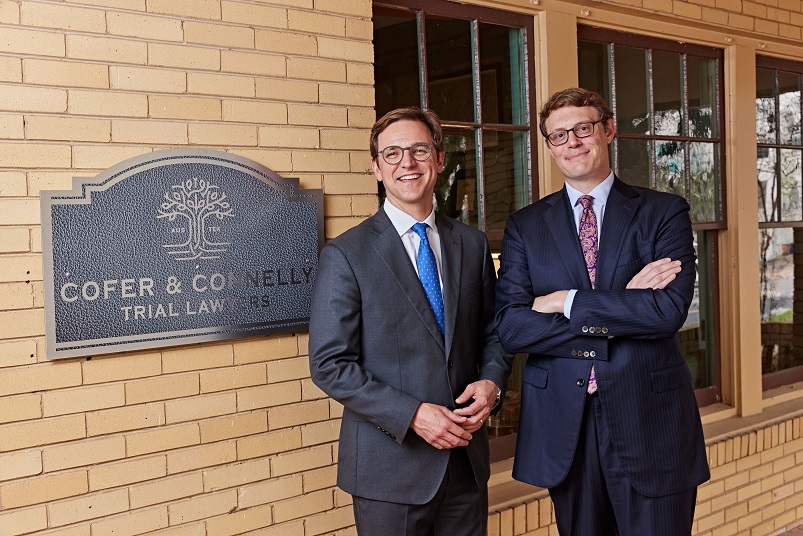
San Marcos Divorce Attorneys
Filing for Divorce? Cofer & Connelly Can Help
Divorce is a difficult process, both emotionally and legally. The legal process of divorce can be confusing and overwhelming, especially if you are not familiar with the law.
At Cofer & Connelly, PLLC, our San Marcos divorce lawyers are here to help you through the process. We can help you understand your rights and obligations and work to protect your interests.

Call (512) 991-0576 or contact us online to schedule a consultation with our team today.
How to File for Divorce in Texas
Residency Requirements
In order to file for divorce in Texas, you or your spouse must have lived in the state for at least 60 days prior to filing. In addition, you or your spouse must have lived in the county where you are filing for divorce for at least 90 days prior.
Know that there are exceptions to this rule for individuals who are filing from another state or who have engaged in a form of public service, such as military service.
The Filing Process
To begin the divorce process, you will need to file an original petition for divorce with the county court. When completing this petition, you as the petitioner (or person requesting the divorce and filing the paperwork with the court) have the opportunity to petition the court for your wishes concerning custody and visitation.
You should know that the respondent (your spouse who did not file for divorce) will be able to do the same. It is important to work with your divorce attorney during this part of the process.
Upon receipt of your petition for divorce, the court will order that your spouse be served the petition. Service simply means being notified of the petition for divorce, but your spouse must be served in an official manner, such as through your attorney’s office or through the local sheriff’s office. Your paperwork cannot be handed off to your spouse and counted as served; it must pass through an official channel.
The Divorce Process
The next steps in the divorce process include:
- Temporary orders: If the couple has children, the court may issue temporary orders regarding child custody, child support, and visitation. The court may also issue temporary orders regarding spousal support and property division.
- Discovery: During the discovery phase, both spouses will gather information about the other spouse's finances and assets. This information will be used to determine how property should be divided and whether one spouse should pay spousal support.
- Mediation: If the divorce is contested, the couple may be required to attend mediation. During mediation, a neutral third party will help the couple work through their issues and reach an agreement. If the couple is able to reach an agreement, the divorce is considered uncontested. If the couple is not able to reach an agreement, the divorce will go to trial.
- Trial: If the divorce goes to trial, a judge will make decisions regarding child custody, child support, visitation, spousal support, and property division. The judge will also grant the divorce.
- Final orders: After the divorce is granted, the judge will issue final orders regarding child custody, child support, visitation, spousal support, and property division.
Once the final orders are issued, the divorce is considered final. The couple is then legally divorced and can remarry if they choose to do so.
How Long Does It Take to Get a Divorce in Texas?
In Texas, there is a 60-day waiting period for divorce. This means that the court cannot grant a divorce until at least 60 days have passed since the divorce petition was filed.
In most cases, the divorce process takes longer than 60 days. The length of the divorce process depends on a variety of factors, including whether the divorce is contested or uncontested, whether the couple has children, and how complex the couple's assets are.
Contested vs. Uncontested Divorce
In a contested divorce, the couple is not able to agree on one or more of the issues in the divorce. This can include issues such as child custody, child support, visitation, spousal support, and property division. As a result, the couple will need to go to trial and have a judge make decisions regarding these issues.
In an uncontested divorce, the couple is able to agree on all of the issues in the divorce. This can make the divorce process much easier and less expensive. In an uncontested divorce, the couple will not need to go to trial. Instead, they will be able to reach an agreement and have a judge sign off on it.
Can I Get a Legal Separation in Texas?
In Texas, there is no legal separation. However, you can enter into a separation agreement with your spouse.
A separation agreement is a legally binding contract that outlines how the couple will handle issues such as child custody, child support, visitation, spousal support, and property division while they are separated. A separation agreement can be helpful if you and your spouse are not ready to get a divorce but want to live apart.
There are several reasons why you may want to enter into a separation agreement with your spouse. For example, you may want to live apart to see if you can work through your issues and save your marriage. You may also want to live apart to protect your finances and assets. A separation agreement can help you do this.
It is important to note that a separation agreement is not a divorce. If you and your spouse have a separation agreement, you are still legally married. This means that you cannot remarry. If you want to get a divorce, you will need to file a petition for divorce with the court.
How Can a Divorce Lawyer Help Me?
Divorce is a complex process that can be difficult to navigate on your own. A San Marcos divorce lawyer can help you understand your rights and obligations and work to protect your interests.
At Cofer & Connelly, PLLC, our San Marcos divorce attorneys can help you through every step of the divorce process. We can help you gather the necessary documents, fill out the required paperwork, and represent you in court. We can also help you negotiate a settlement with your spouse and work to protect your finances and assets.
Other benefits of hiring a divorce lawyer include:
- Experience: A divorce lawyer has experience handling divorce cases and can help you navigate the legal process.
- Objectivity: A divorce lawyer can provide you with an objective perspective and help you make informed decisions.
- Emotional support: A divorce lawyer can provide you with the emotional support you need during this difficult time.
- Less stress: A divorce lawyer can handle all of the legal aspects of your divorce so you can focus on moving forward.
Call (512) 991-0576 or contact us online to schedule a consultation with our divorce attorneys in San Marcos, TX.

-
"Excellent all around. Highly recommend."W. N.
-
"I am eternally grateful for all of the efforts they put in to go above and beyond for everyone they help."Former Client
-
"They really listen to and care about their client's needs and consistently fight for the best outcome! I am eternally grateful for all of the effort they put in to go above and beyond for everyone they help."C.D.
-
103 Years of Experience
-
32,000 Cases
-
357 Trials

































